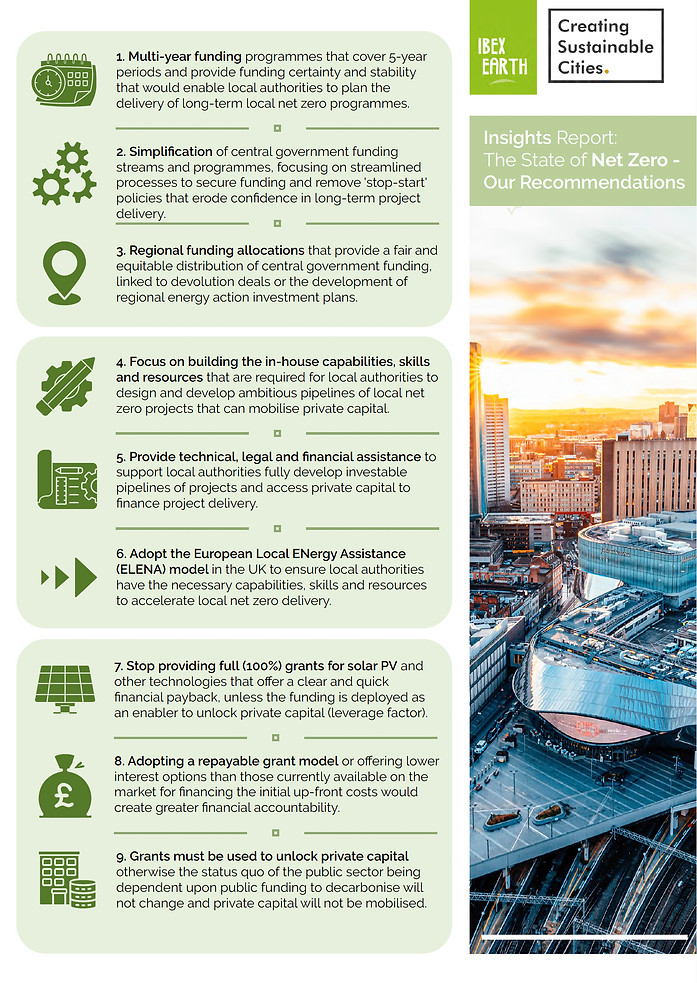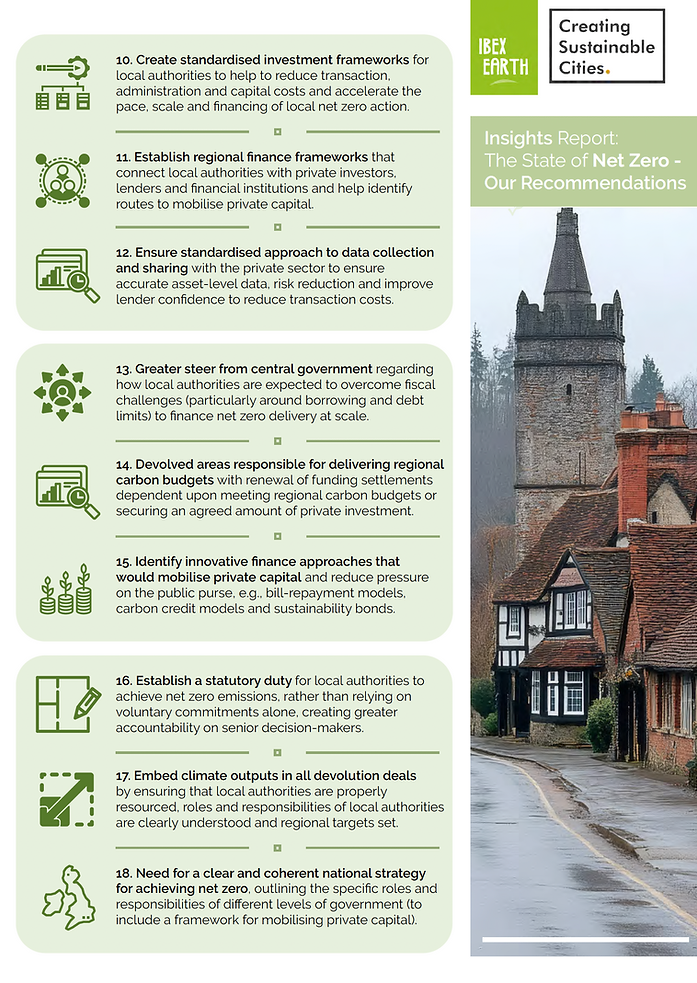

Helping to create
cleaner, healthier & more sustainable cities
The State of Net Zero

Ibex Earth's Creating Sustainable Cities initiative has recently launched the first two publications in the 'State of Net Zero' series of Insights Reports, which explores the current state of net zero delivery in England. The aim of the series is to highlight the urgent need for central government to shift its focus around strategic funding programmes for net zero delivery, which has created a near complete dependence on public grants to fund local decarbonisation efforts, to one that focuses upon developing the capabilities, skills and resources of local authorities that will enable them to work with private lenders, investors and financial institutions to mobilise private capital into local and regional investment programmes.
Without private finance it is impossible to achieve net zero. So why hasn't private capital been mobilised?
Headlines:

A regional disparity
Our first Insights Report identified a clear regional funding disparity in the allocation of key strategic government funding programmes, with the East of England and South East as the regions who are missing out. This is likely to get worse under plans to 'Power Up' Britain.

Private capital isn't mobilising
0/40 local authorities engaged within the current two-tier local government structure had yet to even speak to private lenders, investors or financial institutions, let alone deploy private capital to fund local decarbonisation investment programmes.

A dependence on public grants
Local authorities are dependent on public grants to decarbonise, which is stopping efforts to mobilise private capital, whilst grants are failing to build the capabilities, skills and resources that are needed to deploy private finance in the long-term.
Let's not sugar coat this, current systems, approaches, funding programmes and schemes offered by central government are completely failing to mobilise private capital within the two-tier local government structure. They are not working. Instead, we need a systemic shift in how we approach the delivery and financing of local and regional net zero and climate efforts. The focus must move to building the capabilities, skills and resources of a local authority to develop investable pipelines of projects that attract investors, lenders and financial institutions and mobilise private capital locally.
Our recommendations



